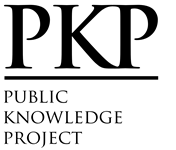PROBLEM-BASED LEARNING APPROACH TO PROVIDE PROFESSIONAL ORIENTATION, INCREASE STUDENTS’ LEARNING MOTIVATION AND THINKING CAPACITY
DOI:
https://doi.org/10.56844/tckhnn.50.500Keywords:
problem-solving, PBL, internal motivation, thinking capacity, linguisticsAbstract
Problem-based learning approach (PBL) was established based on the theory claiming that “a learning process takes place as learners tackle with daily problems” (Barrows & Jamblyn 1980: 1), which means learning from practice. Many studies have pointed out that PBL helps teachers assess the levels of aquired knowledge, skills and facilitates learners’ acquisition because their learning interest is maintained and stimulated. Because of a demand for solutions to posed problems, learning becomes an oriented process with a clear purpose. By dealing with problems in the learning process, learners find knowledge and skills practically meaningful, thus, strengthen their internal learning motivation. During the learning process, learners are also oriented to use sophisticated thinking skills, such as evaluation, comparison and contrast, multidimensional analysis, and most importantly, decision-making to choose the most appropriate solution (with explanantion) to a problem. The article describes a research in which PBL is applied to design learning, assessment and testing activities for English Linguistics module to improve learning motivation, professional orientation and thinking capacity of English majors in Hanoi. Based on the findings, the author provides recommendations to apply PBL to theoretical language subjects.






